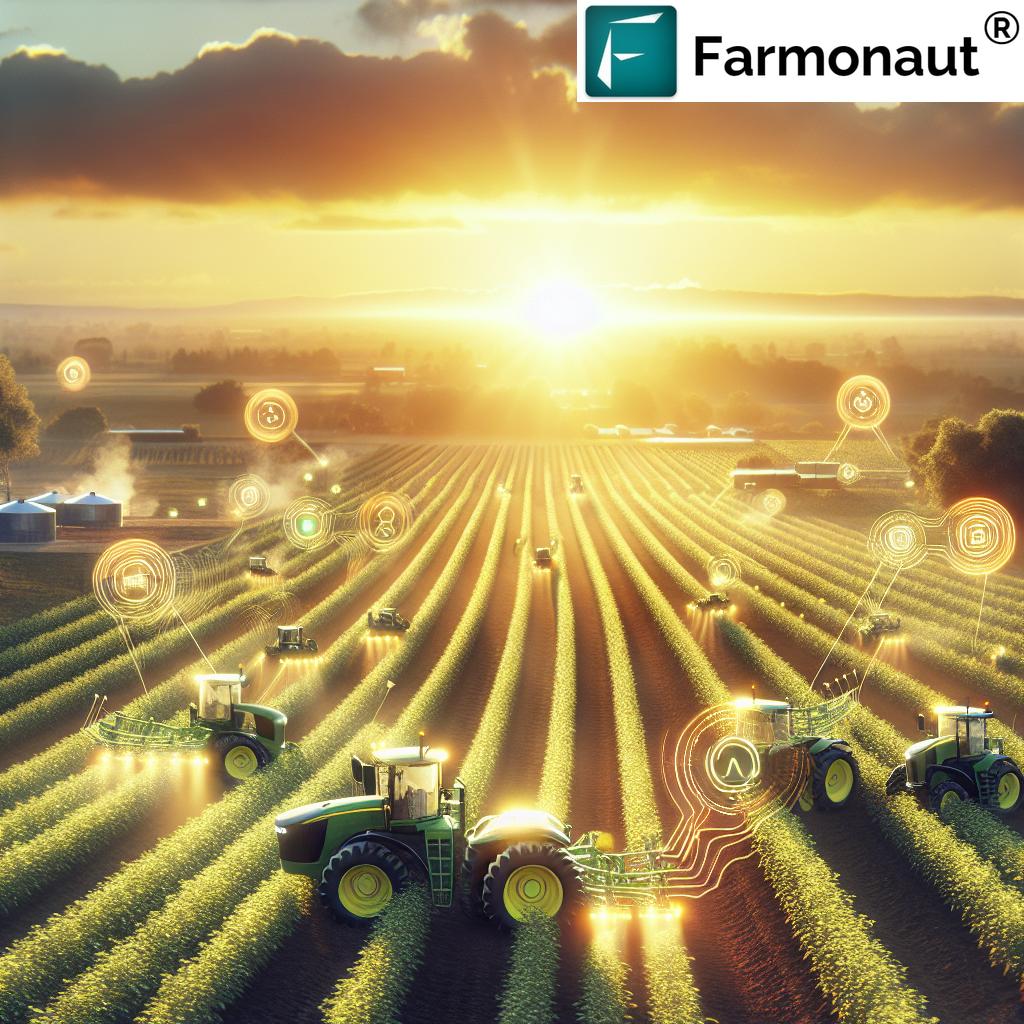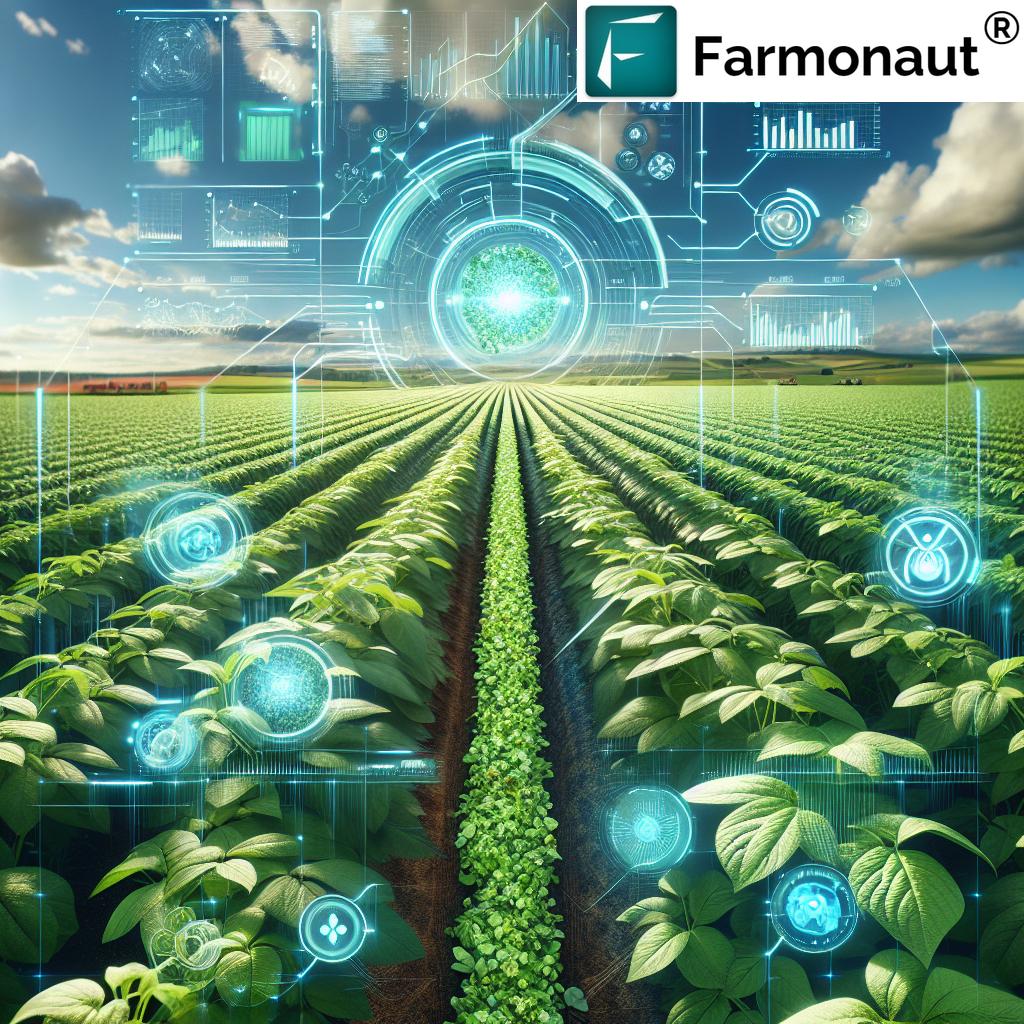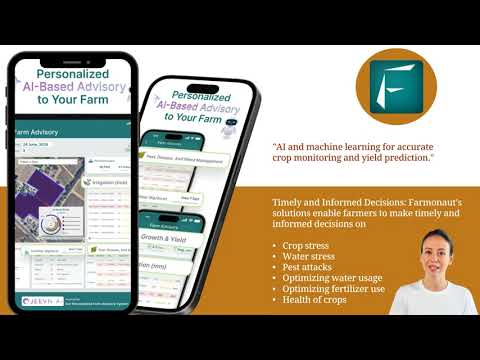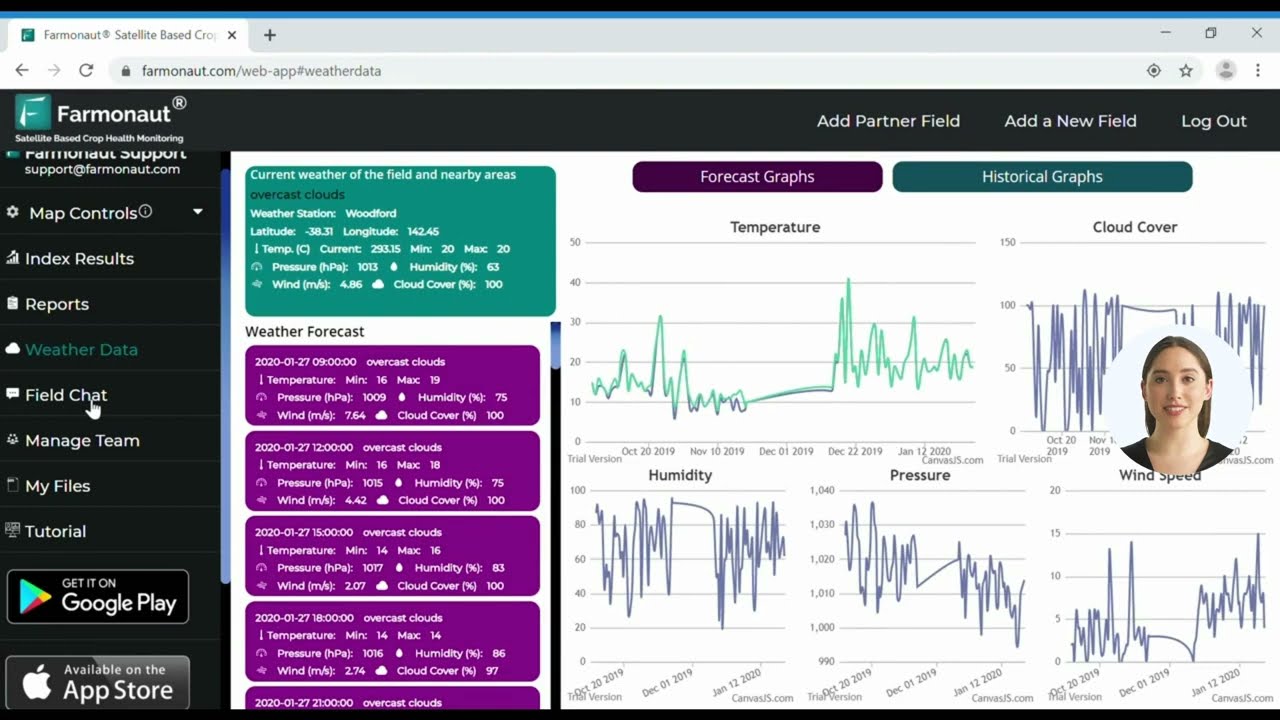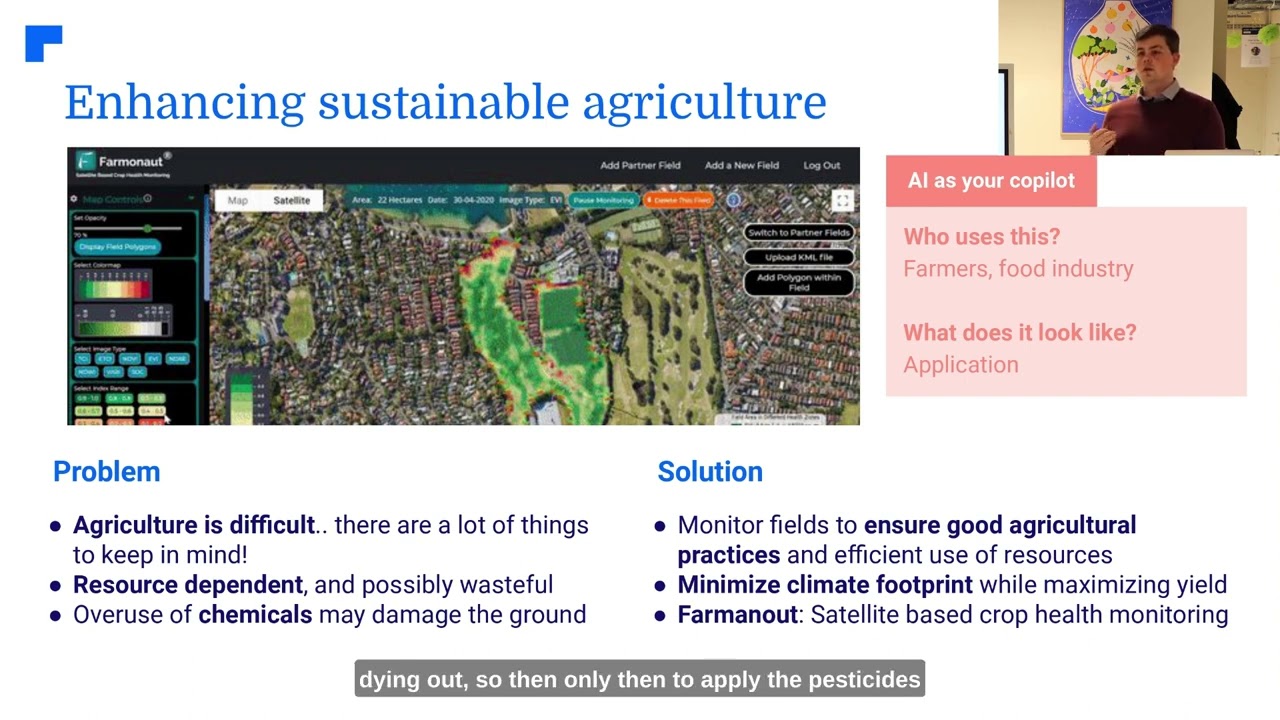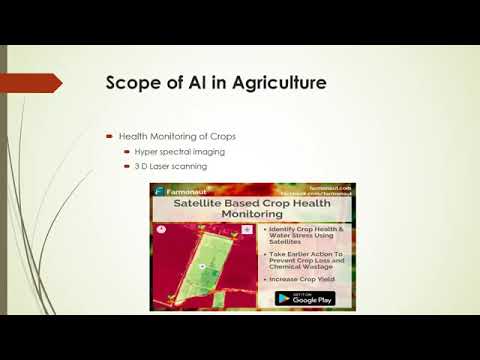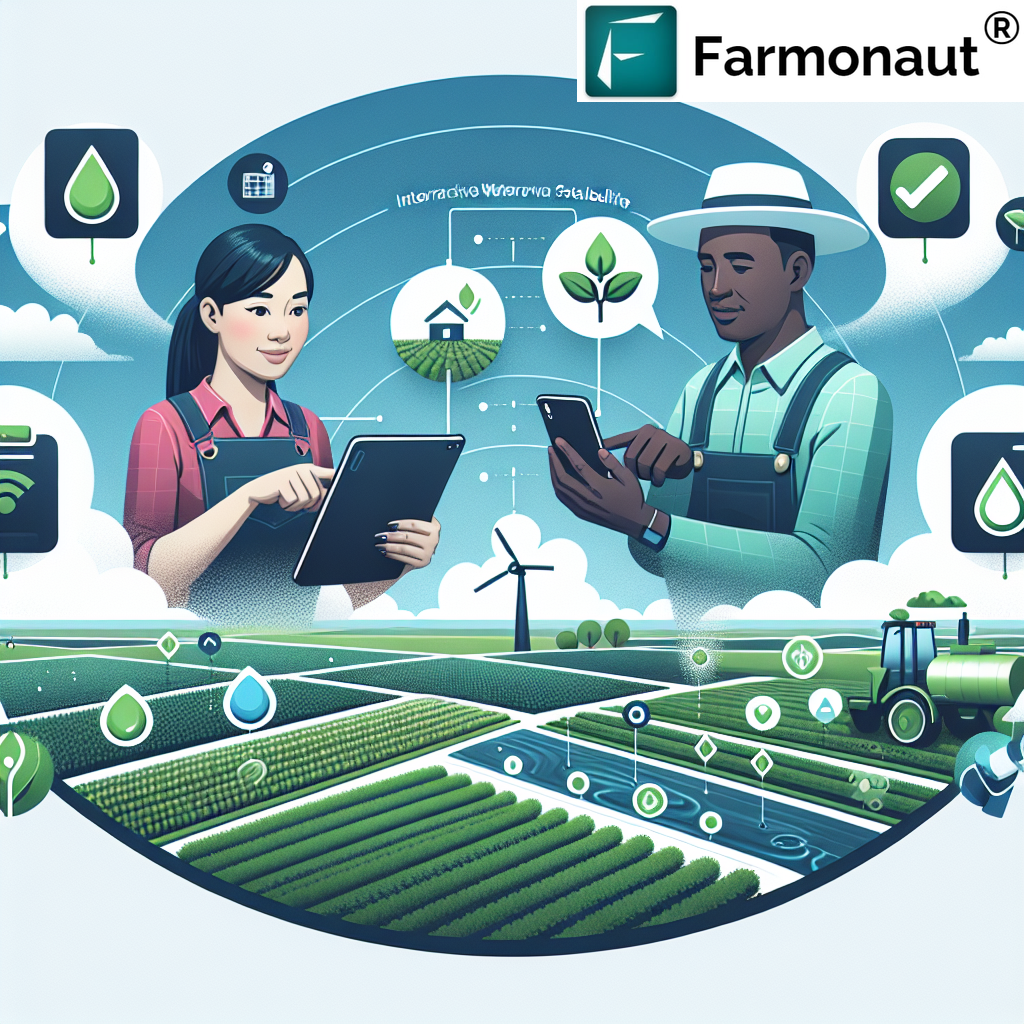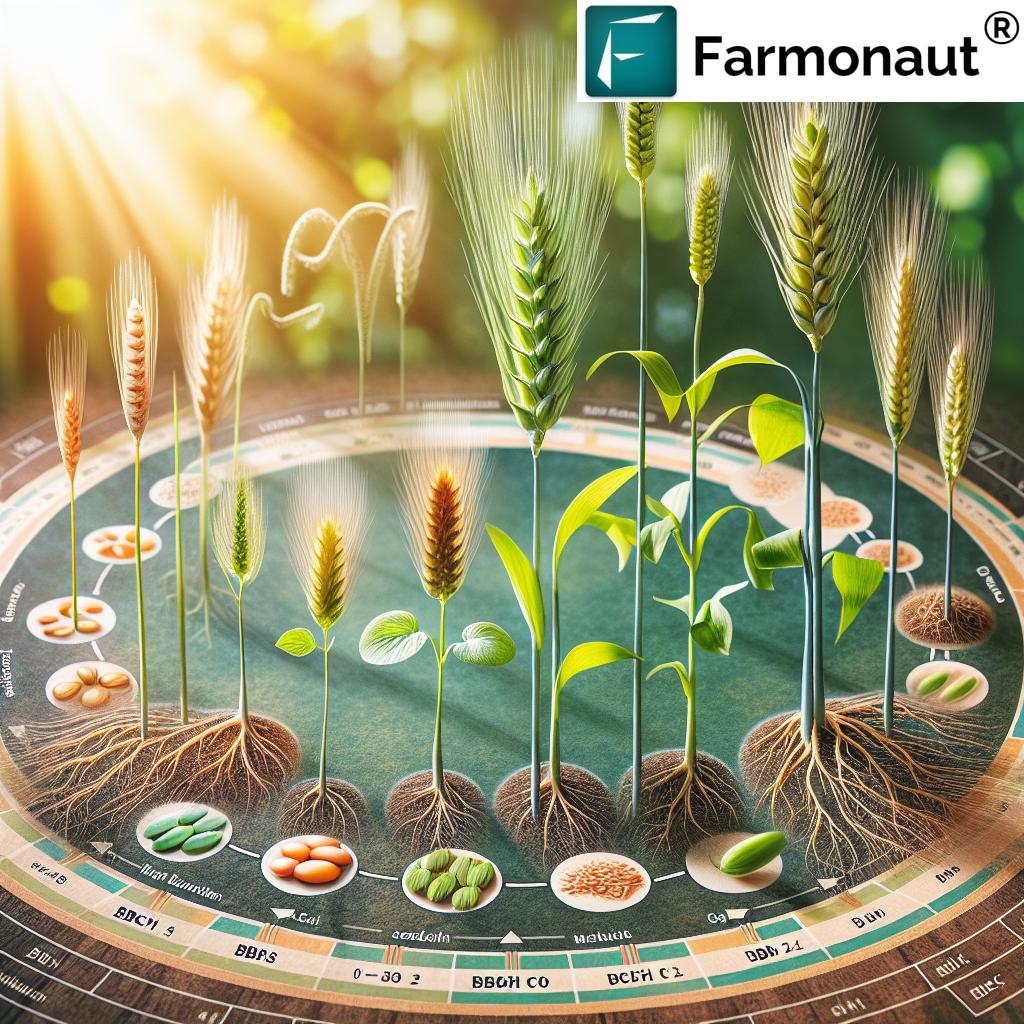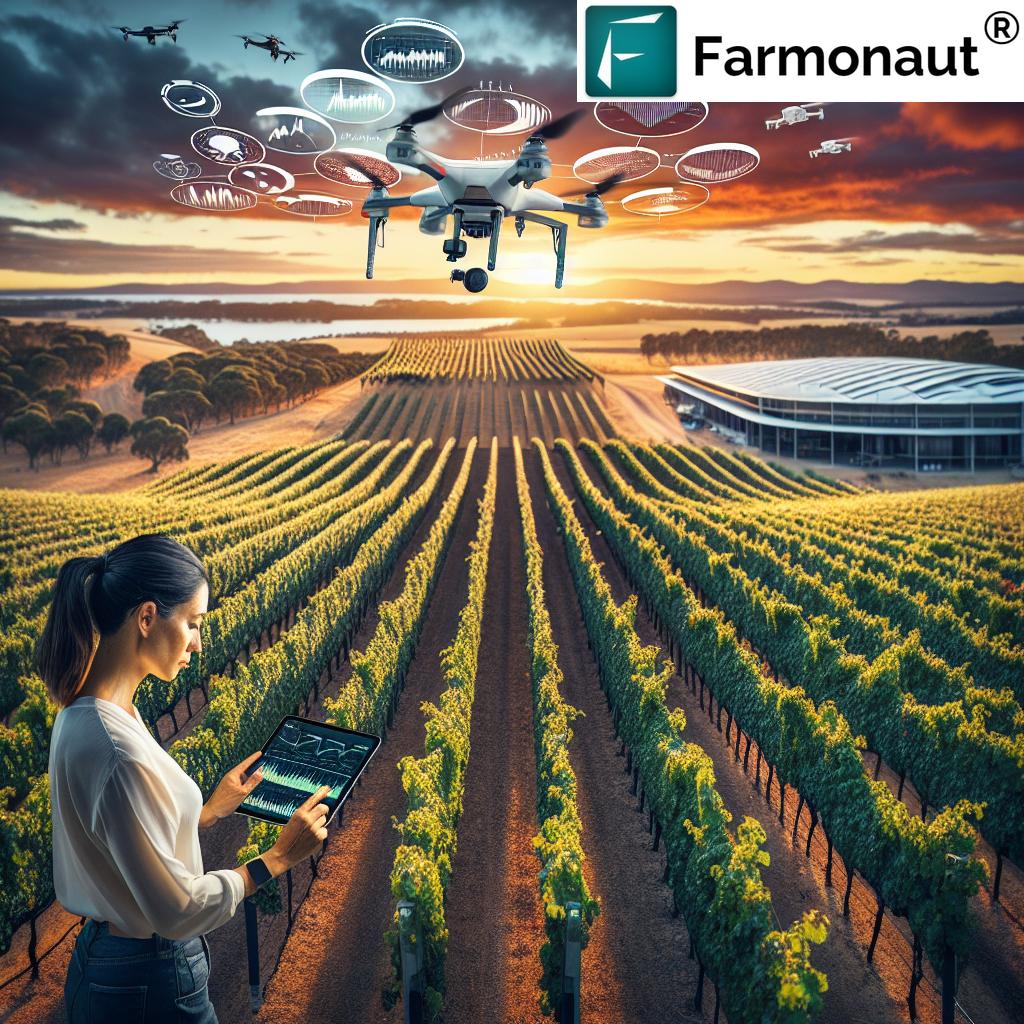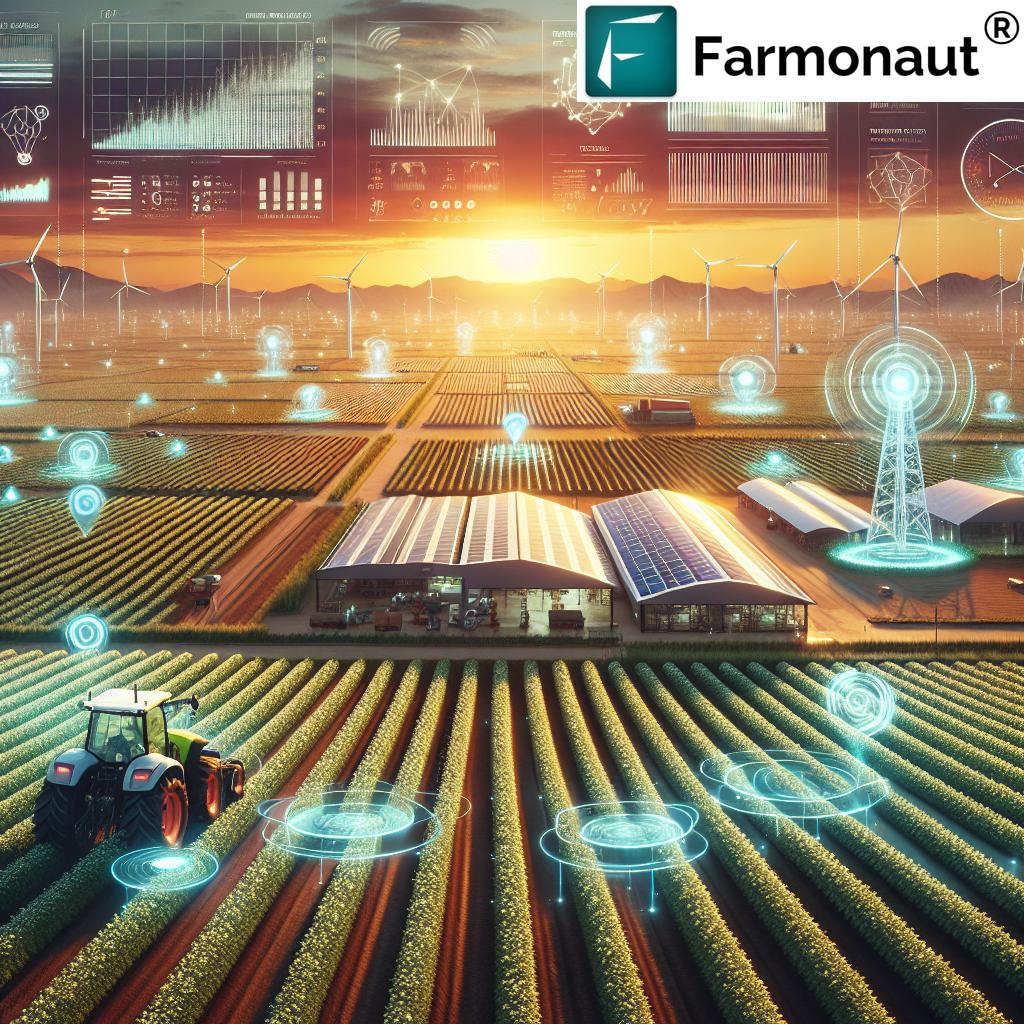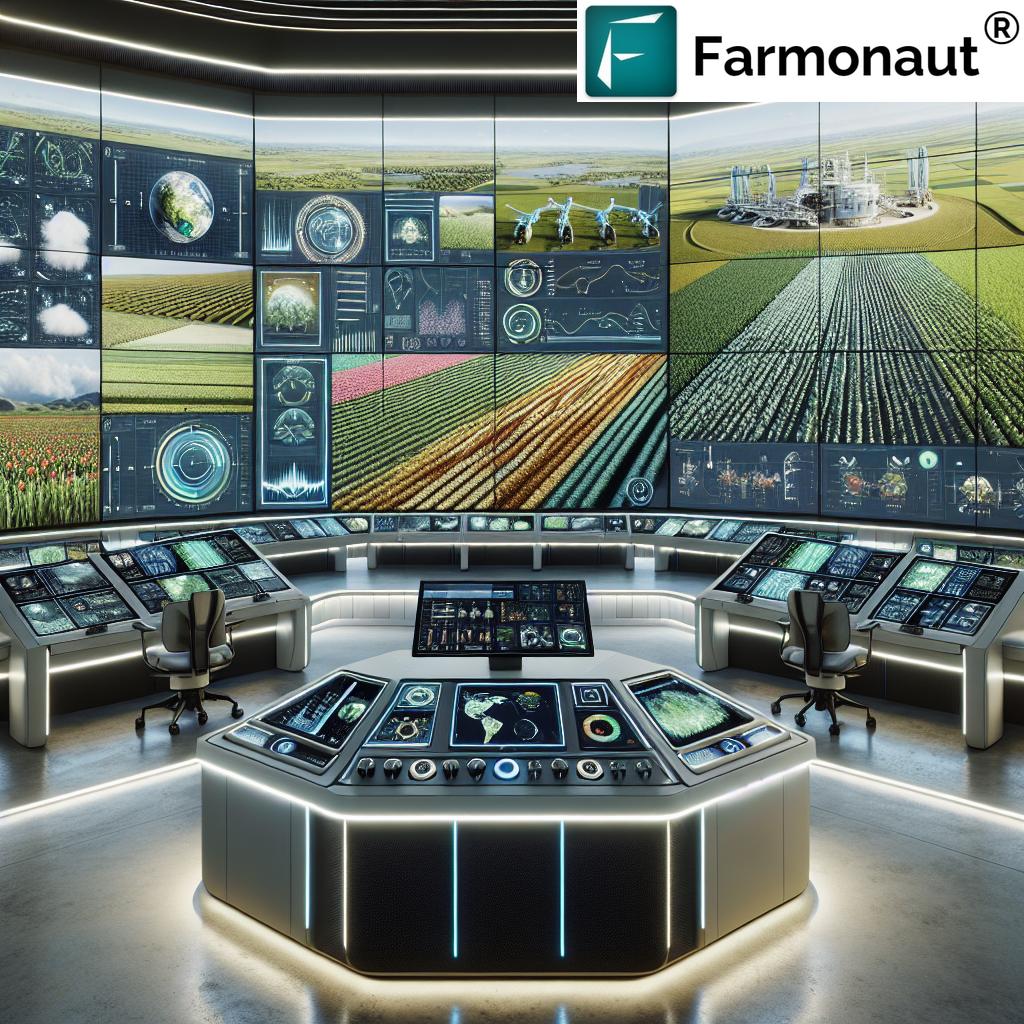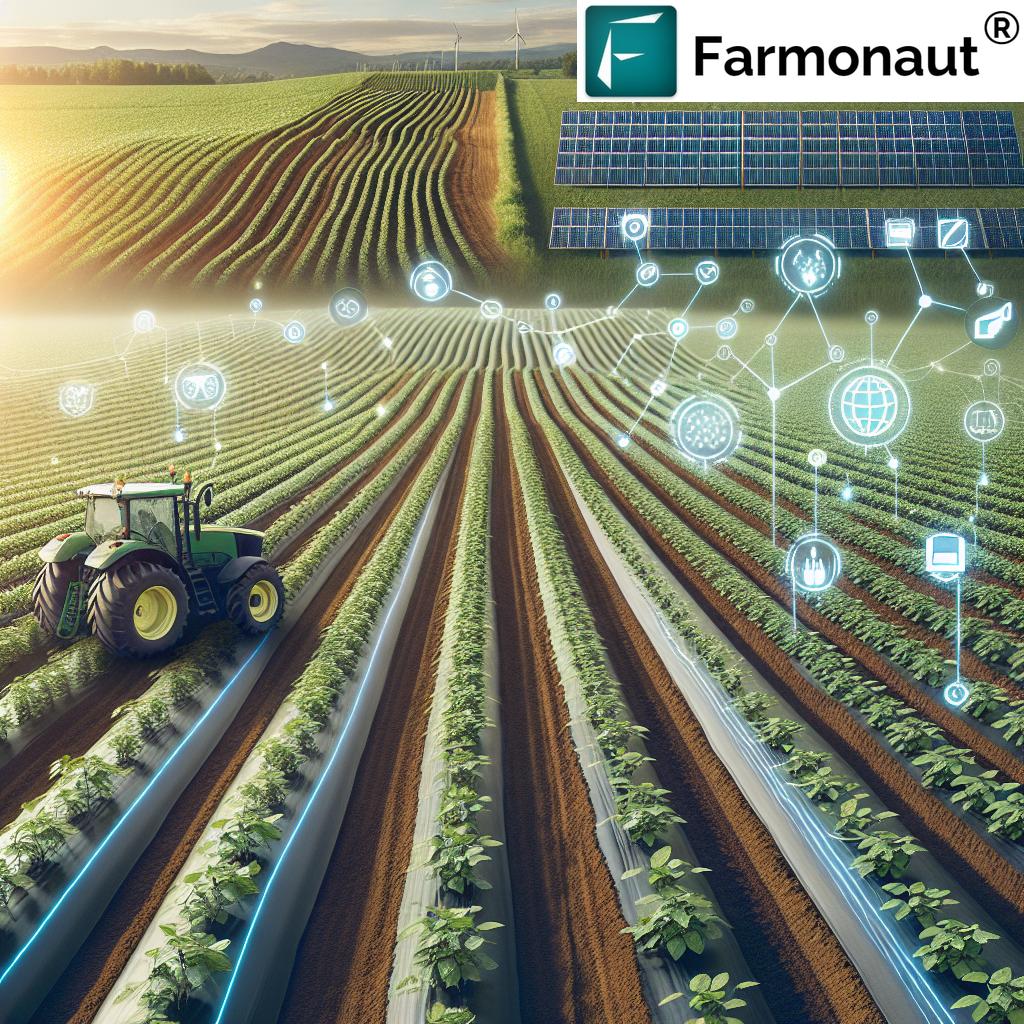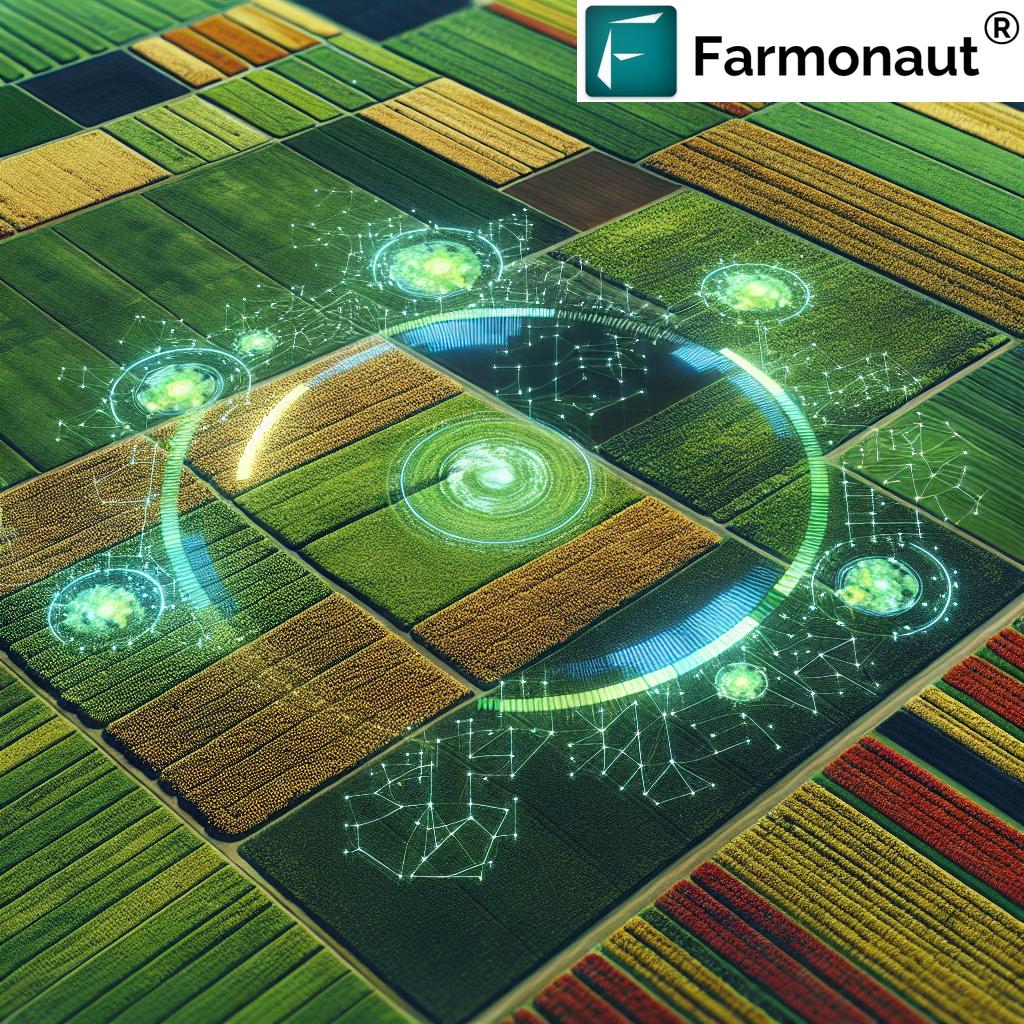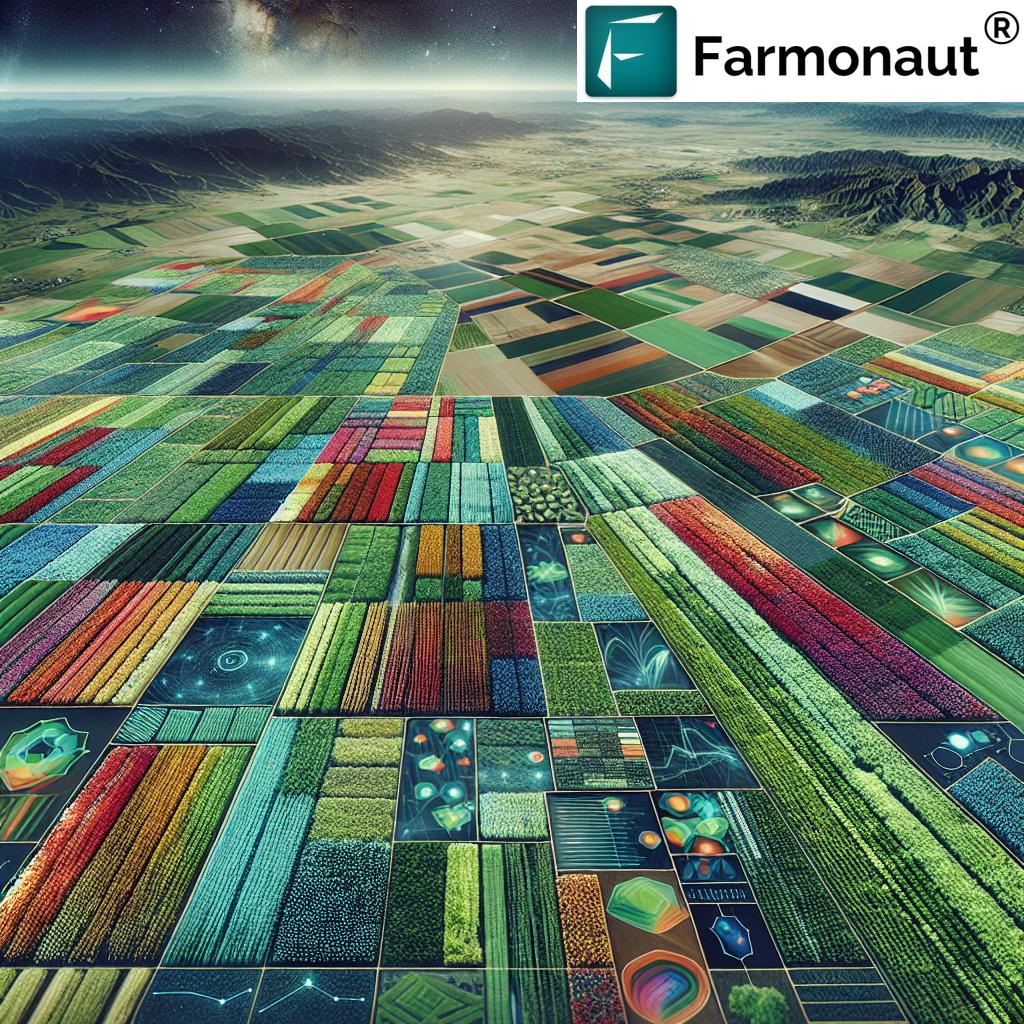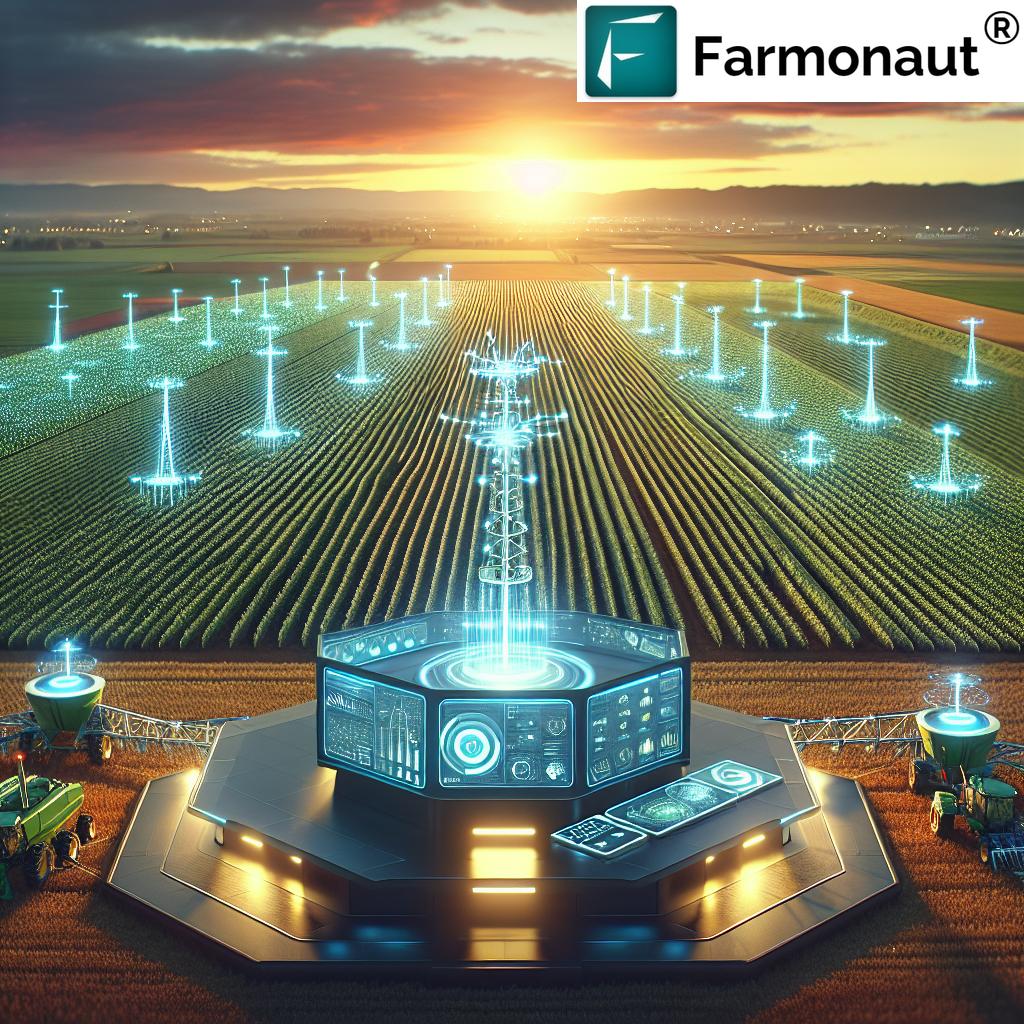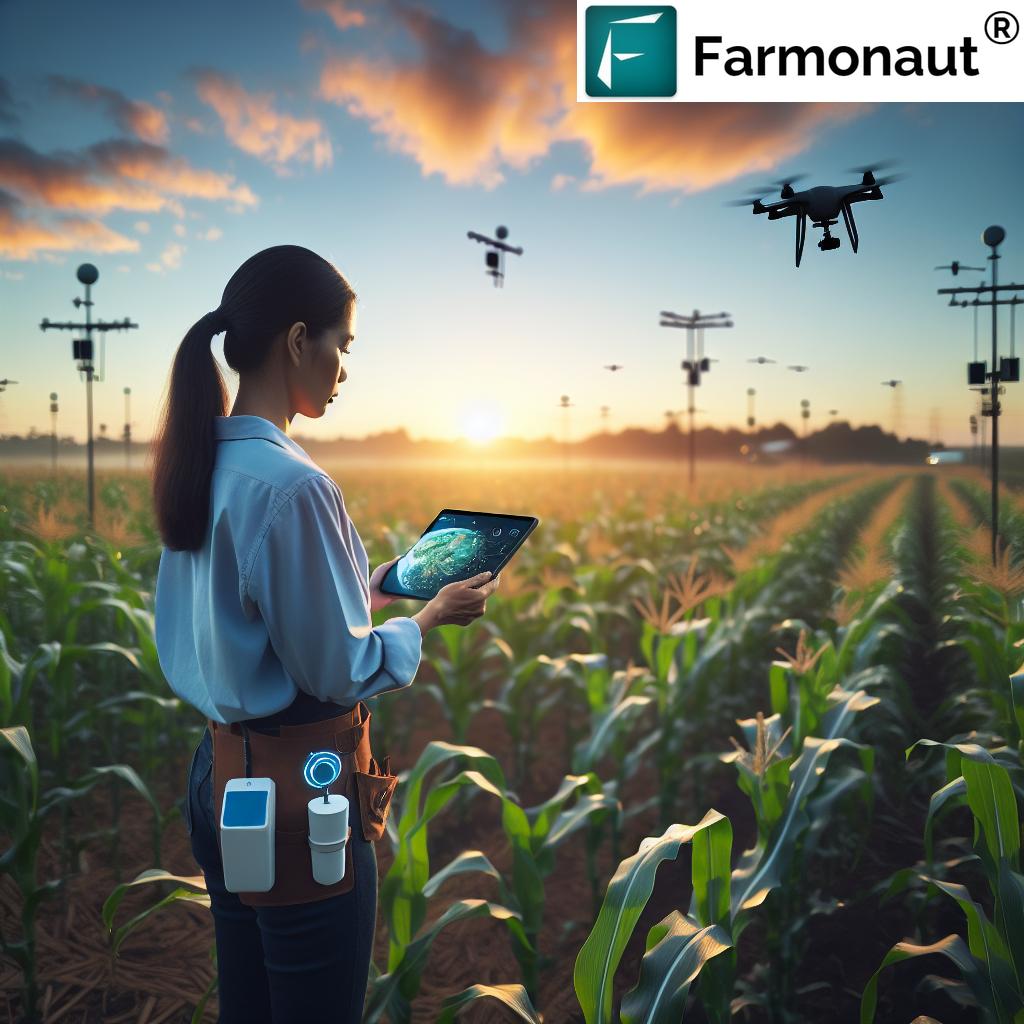AI in Farming: 7 Shocking Innovations You Must See!
Table of Contents
- Introduction to AI in Agriculture
- Exciting Trivia about AI in Farming
- 1. AI in Crop Monitoring and Disease Detection
- 2. Autonomous Farming Equipment
- 3. Smart Irrigation Systems
- 4. Predictive Analytics for Crop Yield Forecasting
- 5. Livestock Monitoring and Management
- 6. Robotic Harvesting
- 7. AI-Powered Weed and Pest Control
- AI for Climate Adaptation & Environmental Conservation
- AI for Agricultural Supply Chain Optimization
- Comparative Features Table: 7 AI Innovations
- Farmonaut: The AI & Satellite Leader in Farm Management
- Farmonaut Subscription Plans
- Frequently Asked Questions
- Conclusion
Introduction to AI in Agriculture
Artificial Intelligence (AI) is ushering in a new era in the agricultural sector, transforming agriculture into a high-tech industry where efficiency, sustainability, and productivity go hand-in-hand. As the global population grows, the demand for food outpaces the capacity of traditional farming. That’s where AI in agriculture shines— offering innovative solutions that address age-old challenges while modernizing farm management.
Today, machine learning in agriculture and AI-powered technologies are becoming central to crop monitoring, disease detection, autonomous field equipment, smart resource management, yield forecasting, and sustainable farming solutions. These advancements are not just buzzwords but essential tools, enhancing productivity, reducing waste, optimizing climate adaptation, and supporting food security worldwide.
Let’s explore the 7 shocking AI innovations reshaping farming and forestry, their remarkable benefits, and how platforms like Farmonaut are making these high-impact technologies accessible and affordable for farmers everywhere.
Watch: Explore Farmonaut’s Advanced Crop Monitoring & Yield Prediction
1. AI in Crop Monitoring and Disease Detection
AI in agriculture has radically transformed crop monitoring and disease detection, enabling farmers to spot crop problems before they escalate into devastating losses. With advanced image analysis, deep learning algorithms, and CNNs (Convolutional Neural Networks), AI can analyze crop images to detect discoloration, lesions, and other early disease symptoms that humans might overlook.
Modern applications like Plantix leverage powerful image recognition and machine learning in agriculture to diagnose problems with crops based on digital images. These AI systems can identify pests, diseases, nutrient deficiencies, and environmental stress, providing timely intervention advice that’s critical for minimizing yield losses.
- Detects diseases in crops during early stages—enabling swift action
- Reduces reliance on excessive chemical use by targeting precise treatment interventions
- Empowers farmers through accessible mobile applications and platforms
On the Farmonaut platform, AI-based crop health monitoring leverages satellite imagery, machine learning, and real-time data analysis to provide farmers with instant crop condition alerts, improving efficiency and yield.
Top benefits of AI-powered crop monitoring include:
- Consistent large-area monitoring (satellite/drone/camera)
- Early detection of pests, diseases, and nutrient issues
- Minimized crop damage and losses through timely intervention
- Data-driven insights for better resource management and sustainability
Watch: Farmonaut Web app | Satellite Based Crop monitoring
Additionally, Farmonaut offers API access and detailed developer documentation for integrating these advanced AI and satellite technologies into other agricultural systems.
Want real-time, AI-driven crop and field insights?
Get started today:
2. Autonomous Farming Equipment
The advent of autonomous farming equipment is reshaping the way we approach planting, irrigation, harvesting, and farm management. AI-powered tractors, harvesters, drones, and robots can perform essential farming operations with minimal human intervention—maximizing efficiency and reducing labor requirements.
These autonomous systems are equipped with intelligent sensors, cameras, and GPS technology, enabling them to navigate fields accurately, analyze crop conditions, and execute precision tasks such as:
- Seeding and planting with centimeter-level accuracy
- Targeted spraying of fertilizers and pesticides
- Automated harvesting—timing the harvest for optimal yield and reducing labor costs
- 24/7 operations—even in challenging weather or lighting conditions
Companies like John Deere have developed smart tractors and machinery that adapt to changing field conditions on the fly. This precise resource application reduces excess fertilizer/water use, protecting the environment while cutting operational costs.
On the Farmonaut Fleet Management platform, large farms and agribusinesses can monitor, coordinate, and optimize their autonomous equipment usage, vehicle safety, and route efficiency—leading to improved sustainability and profitability.
Watch: Farmonaut Covered By Radix AI: Leveraging Remote Sensing and Machine Learning for a Greener Future
Benefits of autonomous equipment in agriculture:
- Increases field operation speed and consistency
- Reduces human error and labor shortages
- Facilitates data-driven management of large-scale farms
- Supports sustainable practices through precision resource use
3. Smart Irrigation Systems
Optimal water management is a major challenge in modern agriculture. AI-based smart irrigation systems are revolutionizing irrigation by analyzing soil moisture data, weather forecasts, plant water needs, and historical patterns to automate precise irrigation scheduling.
Key components of AI-powered irrigation systems include:
- Sensors that continually monitor soil moisture at different field depths
- Weather-integrated data systems that forecast rainfall and evapotranspiration
- AI models that determine when and how much water crops require for optimal growth
- Automated control of irrigation valves—delivering just the right amount of water at the right time
- AI-powered leak and damage detection, preventing water waste
Benefits for farmers:
- Up to 20–30% reduction in water usage
- Lower irrigation costs and improved crop health
- Supports sustainable farming solutions by reducing overuse of water resources
- Read how Farmonaut enables carbon footprint monitoring and sustainability insights for organizations and individual farms!
Smart irrigation is critical for regions susceptible to drought, water scarcity, or erratic rainfall due to climate changes. By leveraging AI, satellite imagery, and IoT, we can make every drop count for both planet and profit.
4. Predictive Analytics for Crop Yield Forecasting
AI’s unmatched ability to analyze vast datasets enables accurate predictive analytics for crop yield forecasting. By considering historical yield data, soil health, real-time weather patterns, nutrient inputs, and field variability, AI models can predict crop yields well ahead of harvest.
- Helps farmers and agribusinesses plan resource allocation more efficiently
- Facilitates supply chain optimization by aligning projected yield with expected demand
- Improves food security through reduced waste and better logistics planning
- Enables governments to direct agricultural subsidies and emergency support where most needed
Farmonaut, using AI and multispectral satellite imagery, provides crop yield estimates and large-scale field monitoring—helping everyone from individual farmers to government agencies make informed decisions.
For more detailed large scale farm management and yield estimation, check out Farmonaut’s Agro Admin App, designed for professional agribusinesses, government organizations, and NGOs who need to monitor thousands of hectares efficiently.
Watch: The Role of Artificial Intelligence in Agriculture – Farmonaut | Agritecture | Joyce Hunter
5. Livestock Monitoring and Management
AI extends its influence to livestock monitoring and management, ensuring the well-being of animals and optimizing farm productivity. Through cameras, wearable sensors, and advanced radar systems, AI monitors:
- Feeding and drinking patterns
- Animal activity, movement, and health status
- Early signs of diseases or distress (detecting issues before they spread through a herd)
- Environmental conditions in barns and fields
AI-based livestock management systems automatically alert farmers to anomalies—enabling swift intervention when animals are sick, distressed, or at environmental risk. This proactive approach leads to:
- Improved animal welfare
- Reduced spread of infectious diseases
- Optimized feed and medical resource use
- Higher yields in milk, meat, or other animal products
Such AI-powered systems are particularly valuable for large-scale or remote livestock operations, allowing for scalable, automated, and predictive animal care.
6. Robotic Harvesting
Harvesting has always been one of the most labor-intensive challenges in farming. Now, AI-powered robots are revolutionizing harvesting by identifying, sorting, and gently picking fruits and vegetables with minimal crop damage.
Key aspects of robotic harvesting in agriculture include:
- Advanced cameras and image recognition to identify ripe crops in real time
- Robotic arms with AI-driven control for delicate picking, reducing waste
- Scalable deployment—robots working alongside human teams or independently for 24/7 operations
Companies like Agrobot have developed robots for strawberry and vegetable harvesting that operate quickly and gently, reducing reliance on hard-to-find seasonal labor and maximizing yields.
Robotic harvesting supports sustainable practices by minimizing damage, waste, and operational costs—paving the way for smarter, scalable agriculture everywhere.
Explore more about precision field operations and optimized planting/harvesting:
- Farmonaut Crop Plantation & Forest Advisory—get AI-powered planting, monitoring, and advisory tailored to your crops & forestry.
7. AI-Powered Weed and Pest Control
Weed and pest management often demands substantial labor and chemical input. AI-powered weed and pest control systems are now making the process more precise, efficient, and eco-friendly. Here’s how:
- Computer vision distinguishes between crop and weed species, even at seedling stage
- Autonomous robots navigate fields, identifying and targeting weeds for removal or spot spraying
- Reduces chemical usage drastically (only where needed)
- Minimizes manual labor requirements and soil disturbance
- Improves crop health through immediate, non-invasive treatments
Solutions like FarmWise’s mechanical weeders use AI, robotics, and machine learning to remove weeds in vegetable crops without damaging plants or relying on herbicides. For integrated pest management, AI models analyze image data, weather, and historical patterns to predict pest outbreaks and recommend timely interventions.
Want to implement AI-powered pest and weed control for your farm, or integrate real-time environmental monitoring in agriculture? Farmonaut provides robust satellite and AI-driven field monitoring accessible from your phone or desktop.
Discover Farmonaut’s blockchain-based product traceability:
Track crops and food products from farm to table, enhanced by AI and blockchain for transparency and trust.
Comparative Features Table: 7 AI Innovations Transforming Farming
| Innovation Name | Brief Description | Primary Application | Estimated Efficiency Gain (%) | Sustainability Impact | Current Adoption Level |
|---|---|---|---|---|---|
| AI Crop Monitoring & Disease Detection | Uses AI/image analysis to detect crop diseases and stress early | Crop monitoring, disease detection | 25-35% | Reduces chemical use, prevents crop loss | High |
| Autonomous Farming Equipment | Robots/tractors handle planting/harvesting with minimal labor | Planting, spraying, harvesting | 30-40% | Lowers fuel/chemical/labor costs | Medium |
| Smart Irrigation Systems | AI schedules/quantifies irrigation using real-time data | Water management, resource optimization | 20-30% | Saves water, improves soil health | Medium |
| Predictive Yield Forecasting | Forecasts yields by analyzing environmental & crop data | Yield prediction, planning | 10-20% | Reduces waste, better supply chain | High |
| Livestock Monitoring | AI sensors manage animal health, feeding, and activity | Animal health, farm management | 15-25% | Reduces losses, ensures welfare | Medium |
| Robotic Harvesting | AI robots identify and pick ripe produce efficiently | Harvesting, sorting | 30-50% | Reduces waste, optimizes labor | Low |
| AI-Powered Weed & Pest Control | Autonomous systems identify and remove weeds & pests | Pest & weed management | 20-35% | Limits chemical use, enhances biodiversity | Medium |
AI for Climate Adaptation & Environmental Conservation
As climate change continues to disrupt agriculture, AI-enabled models help predict weather vulnerabilities, recommend adaptive strategies, and monitor environmental health. Benefits include:
- Advising optimal planting times and crop varieties
- Detecting risks from drought, pests, or diseases tied to climate patterns
- Monitoring biodiversity and ecosystem health through satellite data
- Identifying illegal activities (e.g., deforestation), supporting agri-environmental conservation
Farmonaut’s carbon footprinting module empowers both smallholder and large-scale growers to measure, monitor, and reduce greenhouse gas emissions from farming operations—improving compliance with sustainability standards and reducing environmental impact.
AI for Agricultural Supply Chain Optimization
AI in agriculture doesn’t stop at the farm gate. AI-driven supply chain analysis and optimization streamlines the movement of agricultural goods from field to consumer:
- Integrates yield, weather, and demand data for smarter harvesting and delivery
- Optimizes logistics routes—reducing spoilage and fuel/resource costs
- Enables blockchain-based traceability for food safety and consumer trust
To build transparent, secure, and efficient supply chains—with tracked farm origin, transport, and sale—explore Farmonaut’s traceability platform:
Learn more about traceability for crops, food, and textiles.
For secure crop loan and insurance processes supported by satellite and AI verification—providing confidence for farmers and financial institutions—check out:
Farmonaut’s Crop Loan & Insurance Page.
Farmonaut: The AI & Satellite Leader in Farm Management
As a pioneering agricultural technology company, Farmonaut delivers affordable, real-time AI-powered agri-solutions to everyone from smallholder farmers to global agribusinesses. Here’s what makes Farmonaut stand out:
- Satellite-Based Crop Health Monitoring—multispectral imagery (including NDVI), soil moisture and field condition analysis for data-driven crop care
- Jeevn AI Advisory System—personalized, real-time advice on crop growth, weather, and resource management, powered by machine learning and big data
- Blockchain-Based Traceability—proven record from field to shelf, supporting food safety and brand trust
- Fleet and Resource Management—track vehicles, optimize usage, increase safety and reduce operational costs for farms and agribusinesses
- Carbon Footprinting—monitor farm emissions, track environmental impact, and achieve compliance with sustainable farming standards
Farmonaut is globally accessible via Android, iOS, Web App, and API, providing tools for:
- Farmers—improved yields, operational efficiency, and risk reduction
- Agribusinesses—large-scale plantation management and field analytics
- Government and NGOs—broad farm monitoring, area/yield estimation, and subsidy disbursement support
- Financial institutions—satellite-based crop verification, reducing fraud in loans and insurance
- Corporate clients—supply chain traceability and transparency
Explore the complete platform for large-scale management and AI-powered crop plantation and forest advisory.
Farmonaut Subscription Plans
Farmonaut operates on a flexible, subscription-based model—making high-tech AI and satellite-based farm management affordable for all. Choose your level of monitoring, data updates, and support with options tailored for individual farmers, cooperatives, agribusinesses, and institutions.
Ready to transform your farm management? Try Farmonaut now!
Frequently Asked Questions
What is the role of AI in agriculture?
AI in agriculture enables precision management of crops, livestock, irrigation, diseases, and supply chains. By analyzing huge volumes of agricultural data, AI helps farmers optimize resources, detect problems early, reduce operational costs, and increase yield—making farming more efficient and sustainable.
How does AI benefit smallholder farmers?
AI-driven services, especially when delivered through affordable, user-friendly apps like Farmonaut, empower smallholder farmers by providing real-time crop monitoring, actionable advisory, and early warnings—helping them save resources and improve output despite having limited access to traditional precision tools.
Are AI-powered farming solutions suitable for large and small farms?
Yes! AI in agriculture is scalable. Individual farmers benefit from tailored recommendations and satellite field health alerts, while large farms and agribusinesses use AI for managing hundreds or thousands of hectares, resource and fleet management, and supply chain transparency.
How does AI in agriculture support climate adaptation?
AI analyzes weather, soil, crop and environmental data to recommend optimal planting times, detect climate-driven pest outbreaks, and suggest resilient crop varieties. It also enables tracking and reduction of carbon emissions via modules like Farmonaut’s Carbon Footprinting.
Can Farmonaut be integrated into my existing agri-platform or ERP?
Yes, Farmonaut offers comprehensive APIs with technical documentation (API Documentation), allowing seamless integration of satellite, weather, and crop health data into any agricultural management system.
Which devices does Farmonaut support?
Farmonaut supports Android and iOS smartphones, web apps, and browser-based interfaces, ensuring accessibility for every type of user. API access also supports integration for third-party and custom solutions.
How does Farmonaut’s blockchain-based product traceability work?
Every step of the product journey—from planting, harvesting, to delivery—is recorded on a secure, immutable blockchain. This provides transparency, accountability, and traceable proof for food, textile, and supply chain certification. Learn more on the Traceability Solutions Page.
Conclusion: AI Revolutionizing Agriculture
From AI-driven crop monitoring and disease detection to autonomous equipment, smart irrigation, predictive yield analytics, livestock management, robotic harvesting, and targeted weed and pest control, AI in agriculture is not a distant future—it’s the reality reshaping our fields today.
Platforms like Farmonaut are making this revolution affordable, scalable, and accessible to all—helping both smallholders and global agribusinesses increase efficiency, decrease costs, promote sustainability, optimize resource use, and ultimately secure the world’s food supply.
It’s never been easier to integrate AI and data-driven insights into your farm or supply chain. Join the new agricultural revolution now—because the future of sustainable, productive farming is already here.
For more information on subscriptions, APIs, climate and sustainability modules, and advanced farm management solutions, visit farmonaut.com.


